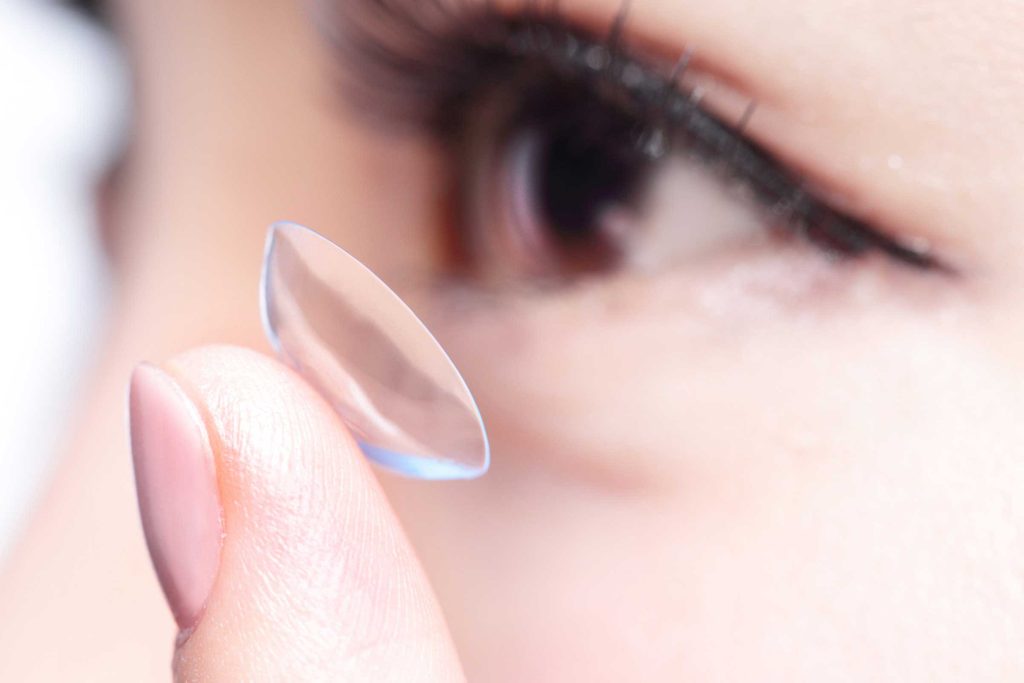Sleeping with Contacts: How Bad Is It?
Updated: Jul. 11, 2019
We've all done it out of sheer exhaustion, forgetfulness, or necessity, but is sleeping with contacts in really that bad?

A common question that contact lens wearers have is whether sleeping with contacts in overnight is OK. “One of the first questions I always ask my contact lens wearers is whether they sleep in their contact lenses,” South Florida ophthalmologist Inna Ozerov, MD, says. “As a cornea specialist, some of the worst corneal infections I have treated were directly related to poor contact lens hygiene habits.” And it makes sense—here’s what would happen to you if you never took out your contact lenses.
Is sleeping with contacts okay?
The short answer is not really. While it is certainly possible to have done so and be just fine, don’t be tricked by past success and think it is okay to be sleeping with contacts in on a regular basis. There are a great number of risks and the possible negative outcomes are not minor. Severe medical and long term health consequences can arise.
What about overnight lenses?
According to the All About Vision website, the FDA first approved certain contact lenses for overnight wear in 1981. These lenses were approved for up to two weeks of wear without removal, but shortly after this approval, some lenses received FDA approval for up to 30 days of continuous wear. As time passed, researchers found that the incidence of eye infections was greater among people who slept while wearing contact lenses so the FDA reduced the maximum extended wear period to seven days.
What are the risks?
Many eye care professionals still feel strongly that overnight wear is too risky, and that includes Dr. Ozerov. She says that even though there are contact lens brands that are FDA-approved for overnight use, she always warns her patients of potential dangers. “A central corneal ulcer can progress fairly quickly over 24 hours and can have potentially devastating consequences on a person’s vision,” she says. “The more virulent type of organisms that invade the cornea thrive in a dark, moist, low oxygen tension environment. These are precisely the conditions that occur on the ocular surface when we sleep. The lens may allow micro-organisms to adhere to the lens, therefore increasing the likelihood of infection.”
In May of 2019, Vita Eye Clinic posted these graphic photos on Facebook to show people the true damage these ulcers can have. The doctors explain how contacts can trap fast-acting bacteria against your cornea and what that means for your eye health. “The bacteria explosively eats away at the patient’s cornea in a matter of days, leaving a soupy, white necrosis (dead tissue) in its wake.” Without proper (and highly regimented) medical care, this can cause permanent scarring and permanent vision loss.
Ulcers aren’t the only risk. The National Sleep Foundation warns that the lack of oxygen reaching your cornea for that 24-hour span can also have detrimental risks that may keep you from being able to wear contacts ever again. The Foundation also outlines how sleeping with your contacts can give you red eye, cause growths on your eyelids, and cause other infections as well.
Ozerov adds that contact lens users need to remember that a contact lens is a medical device and requires proper care. “I also remind my contact lens wearers they should always have a pair of glasses to fall back on,” she says.
Sleeping in contacts regularly (especially those not made for overnight wear) is just one of many mistakes contact lens wearers make that can damage their eyes. Here are more secrets your eye doctor won’t tell you.
